There’s something weirdly comforting about the Final Destination franchise. No matter how dumb they get (and they do get very dumb), you can always count on these movies to deliver the goods when it comes to elaborate, suspenseful, and hilariously grisly death scenes. That’s the entire appeal, really. Since the original film’s release in 2000, this series has firmly held its place as the horror equivalent of a Rube Goldberg machine - characters cheat death, death gets pissed, and then we sit back and watch as some poor soul gets Final Destination’d.
It’s a formula that’s remained remarkably intact over the course of six films, with only minor tweaks and changes. A group of people escape a large-scale disaster thanks to one person’s vision, only to die one-by-one in increasingly cartoonish and creatively staged accidents. These movies run on a kind of cynical glee, where Death is essentially a trickster god with a knack for slapstick. They’re not scary in any traditional sense - instead, they work as darkly comedic tension exercises, toying with your expectations and rewarding you with twisted payoff.
What’s maybe the most fascinating about Final Destination as a series is how rarely it deviates from this structure, and yet how wildly the tone fluctuates from entry to entry. Some feel more grounded in dread, others lean hard into absurdity. Some build suspense masterfully, others bumble around until the next kill scene. At their best, they’re like sick little morality plays about fate and mortality. At their worst, they’re like Looney Tunes sketches with higher body counts.
So with that in mind, here’s how every movie in the Final Destination franchise stacks up, from the dumbest disaster to the most deadly delightful.
Final Destination 2 (2003)
There’s an undeniable power to the opening of Final Destination 2. The infamous highway pileup scene remains one of the most shocking, visceral, and well-remembered set pieces in horror history. It taps directly into a primal fear — you’re on a routine drive and suddenly, out of nowhere, the world explodes into chaos. In many ways, this is Final Destination’s formula at its most refined: mundane modern life turned instantly deadly.
Unfortunately, the movie peaks there.
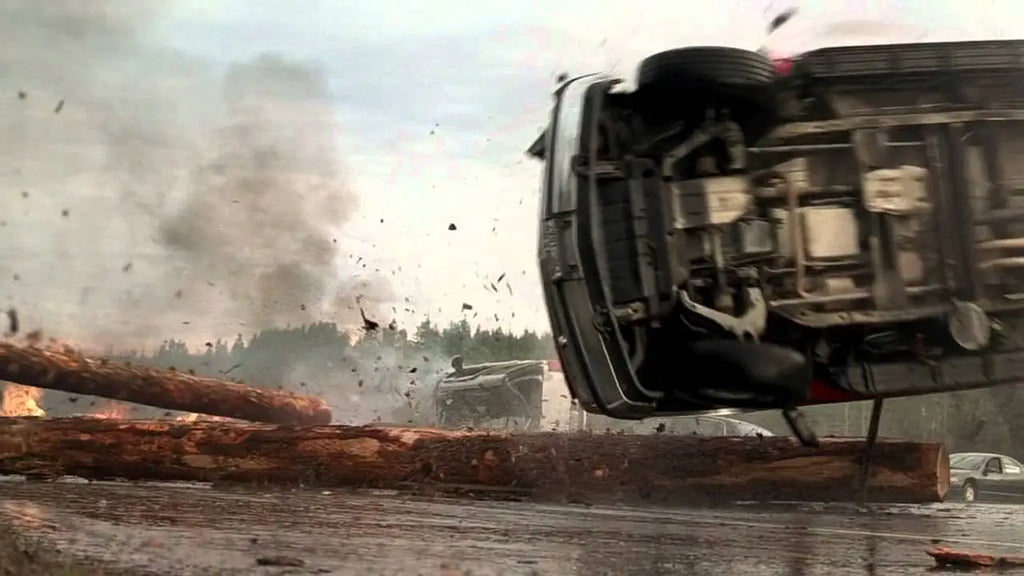
The rest of Final Destination 2 is a mess, and not in the fun, gory, over-the-top way. It overcomplicates the mythology introduced in the first film, doubling down on contrived rules about how death’s design can be interrupted, reversed, or even transferred. These narrative gymnastics aren’t engaging - they’re just confusing. The film tries to deepen the lore while also offering more extravagant kills, but it mostly just ends up feeling dumb, loud, and directionless.
There’s some exploration of survivor’s guilt and post-traumatic stress buried underneath the silliness, and you can feel the film reaching for thematic weight. But that’s quickly drowned out by the increasingly ridiculous plotting and characters who seem to exist purely to die in outrageous ways. Despite a few memorable sequences (the elevator and airbag deaths are pretty gnarly), this one just doesn’t hold together. And compared to the ones that embraced their own nonsense more fully, Final Destination 2 feels like a clumsy midpoint - not grounded enough to be serious, not wild enough to be fun.
Final Destination 3 (2006)
Here’s where things start to get truly idiotic - but also a lot more entertaining.
Final Destination 3 kicks off with one of the best setups of the series: a deadly roller coaster derailment that’s shot and edited with an energy guaranteed to make your stomach drop. That opening is a certified banger. And then, not long after, comes the film’s most infamous death scene: the tanning bed disaster. It's disgusting, outrageous, and genuinely hard to watch - exactly the kind of sequence people come to these movies for.
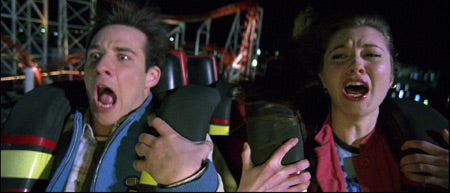
Credit where it’s due: cinematographer Robert McLachlan was absolutely cooking throughout this one. The movie looks fantastic, with a polished, lurid style that suits the series perfectly. But tone-wise? This is a total mess. The film veers from bleak to goofy to mean-spirited in the span of a single scene. It’s caked in mid-2000s edge and bad taste, with a crude sense of humor that dates it worse than any of its CGI.
And yet, for all its stupidity, Final Destination 3 is rarely boring. Mary Elizabeth Winstead gives the series one of its few genuinely good lead performances, and while the story is nonsense, the pace rarely drags. It’s pure trash cinema, but if you’re already on board for the chaos of this franchise, it’s at least got some flair.
Final Destination 5 (2011)
By the fifth entry, you’d think this franchise would be out of steam. But Final Destination 5 shows some signs of new life, at least for a little while. The setup is as solid as ever - this time it’s a suspension bridge collapse, rendered with impressive scope and grisly attention to detail. It’s another standout opener in a series known for them, and the following gymnastics accident is a perfect encapsulation of the franchise’s best qualities as well: slow-build tension, fakeouts galore, and a nasty payoff.
Director Steven Quale, coming off his work as second-unit director for James Cameron, brings a slick eye to the proceedings. There's a polish to this one that stands out, and the pacing in the early stretch is tight. The kills, while fewer in number, are some of the most suspenseful since the original.
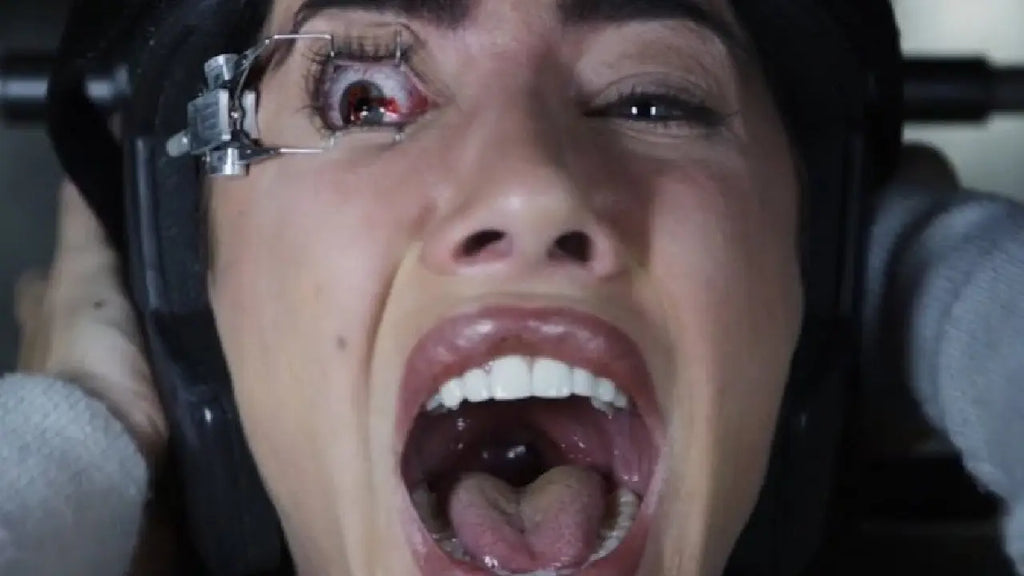
But then...the movie just kind of flatlines. Once the setup’s done and a couple kills are out of the way, the energy evaporates. The characters are flat and the middle section drags hard. The fakeout tension tricks only work for so long before they start feeling like stalling tactics. It becomes clear how much the series relies on its opening disasters to carry the rest of the movie.
Still, Final Destination 5 earns some goodwill with its clever ending twist - one of the more successful surprises in a franchise that usually telegraphs its moves. It doesn’t quite redeem the dull second half, but it does leave things on a strong note.
The Final Destination (2009)
Now we’re talking. The Final Destination opens with a high-octane stock car race disaster, complete with tires flying into the stands and fireballs erupting over panicked crowds - all while Shinedown’s “Devour” blasts on the soundtrack. Instantly iconic. Instantly unhinged. It’s the franchise’s energy distilled into a single scene.
This movie fully embraces the absurdity of the concept in a way the earlier entries struggled with. It understands that people are here to watch ridiculous deaths, not actually wrestle with themes of fate or the ethics of cheating death. The kills are big, dumb, and gruesome in exactly the right ways. And unlike 2 or 3, this one actually seems to have consistent fun with its own nonsense.
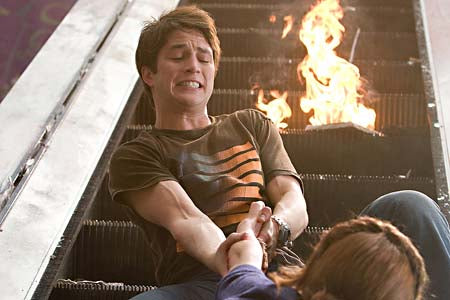
The film also tries to introduce a new wrinkle to the formula: the protagonist receives additional visions that offer cryptic clues to the upcoming deaths. It’s a gimmick that mostly results in awkward CGI sequences and doesn’t amount to much, but points for trying something new. At least this one isn’t trying to retcon the rules or add convoluted mythology - it just wants to cause carnage.
Yes, the acting is wooden and the characters are barely sketches. Yes, the visual effects are hit-or-miss. But there’s an honesty to how stupid this movie is. It’s here to entertain, and it does. The hilariously abrupt ending is just the cherry on top of this trash sundae. For sheer spectacle, The Final Destination delivers.
Final Destination: Bloodlines (2025)
Against all odds, and reviving the franchise after over a decade, Bloodlines emerges as one of the most satisfying entries in the franchise by actually understanding the assignment. It’s dumb. It’s bloody. It’s mean. It’s fun.
Read our full review: 'Final Destination Bloodlines' is Bloody Fun in the Best Way
Directed by Zach Lipovsky and Adam B. Stein (Freaks), Bloodlines doesn’t stray too far from the formula - a massive disaster kicks things off, a group of people begin to drop like flies in increasingly elaborate ways, and a desperate attempt to cheat fate ensues. But what sets this one apart is its sense of confidence. The film is slick and surprisingly well-shot, with creative set pieces and gory kills that don’t feel neutered by the studio (a welcome shift from the franchise’s low points). There's an energy here - not just in the pacing, but in how it leans into the absurdity without ever outright parodying itself.
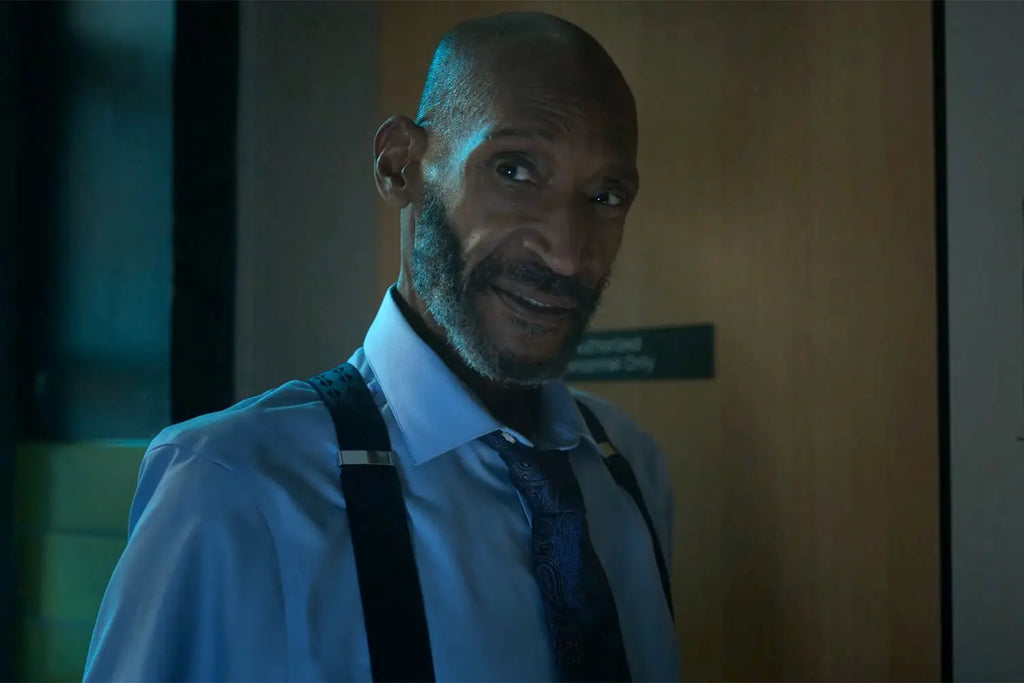
It’s still wildly convoluted - this is Final Destination, after all - but there’s a genuine effort here to tie the series’ loose ends together while offering a fresh cast and a new hook. There’s even an honest-to-god thematic throughline about generational trauma and legacy, which feels surprisingly coherent for a franchise that’s mostly been about people getting domed by rogue tires and malfunctioning kitchen sinks.
Dumb? Sure. But gloriously so.
Final Destination (2000)
There’s a reason this concept took off.
The original Final Destination may not be the most outrageous or gruesome in the series, but it’s the one that feels like it’s genuinely trying to be a movie. There’s a real premise here, one that owes more to The X-Files or The Twilight Zone than to slasher flicks. What if death itself was the killer? What if escaping your fate only made things worse? Those are great horror ideas, and this movie treats them with enough seriousness to make the first half genuinely chilling.
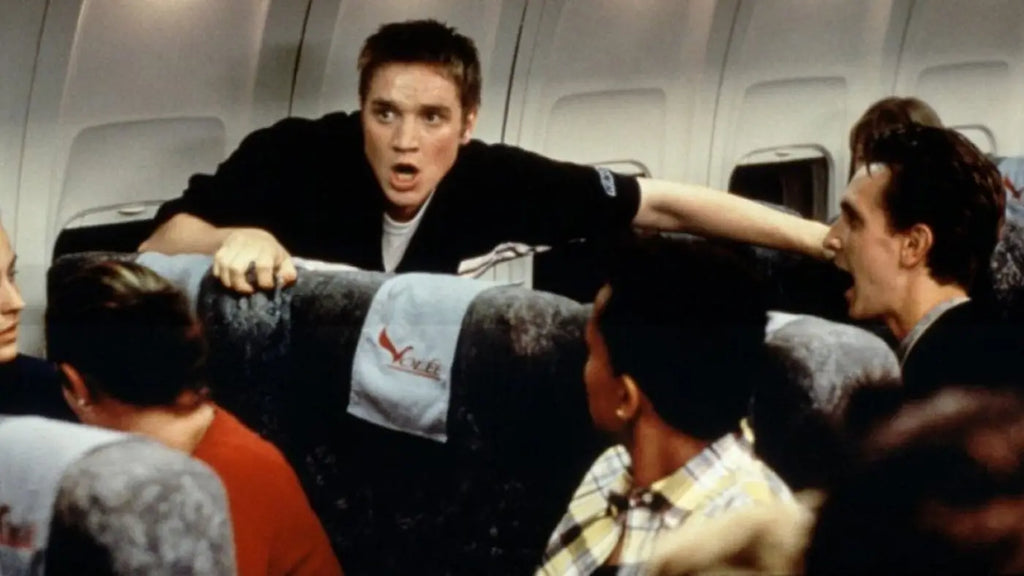
Sure, it can’t fully sustain that energy. By the final act, things get repetitive and a bit silly, and the characters aren’t strong enough to carry the weight of the story. But the atmosphere is thick with dread, and the direction by James Wong is confident and effective. There’s something eerie and cosmic about the way death works in this world - it’s more abstract and psychological than in the sequels, which later leaned hard into slapstick and shock value.
What’s most impressive in retrospect is how much this film set the tone for a franchise that would go on to span decades. It laid the blueprint, and nearly every entry after it would follow it beat-for-beat, sometimes literally. And despite its limitations, it remains the most balanced, the most grounded, and the most conceptually rich entry. It’s not the most fun, but it is the best of them.




